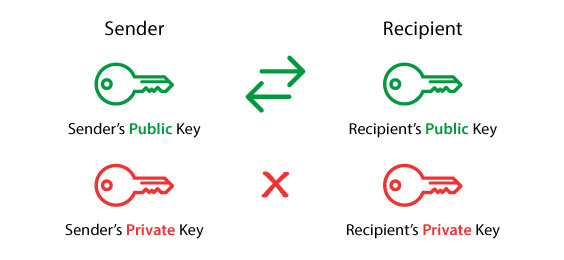
Why is Email Encryption Needed?
S/MIME encrypts the content of an email when it's transferred from a sender to a receiver.
Message Privacy — Encrypted emails are readable only by the intended recipient. This keeps your emails protected if an unauthorized person attempts to read your emails. Any content or document that is part of the email is kept confidential between the sender and receiver.
Message Integrity — The decryption process of the message involves verifying the contents of the encrypted message. A change in the content of the message would ensure the failure of the decryption process thus making it possible to verify its integrity.





